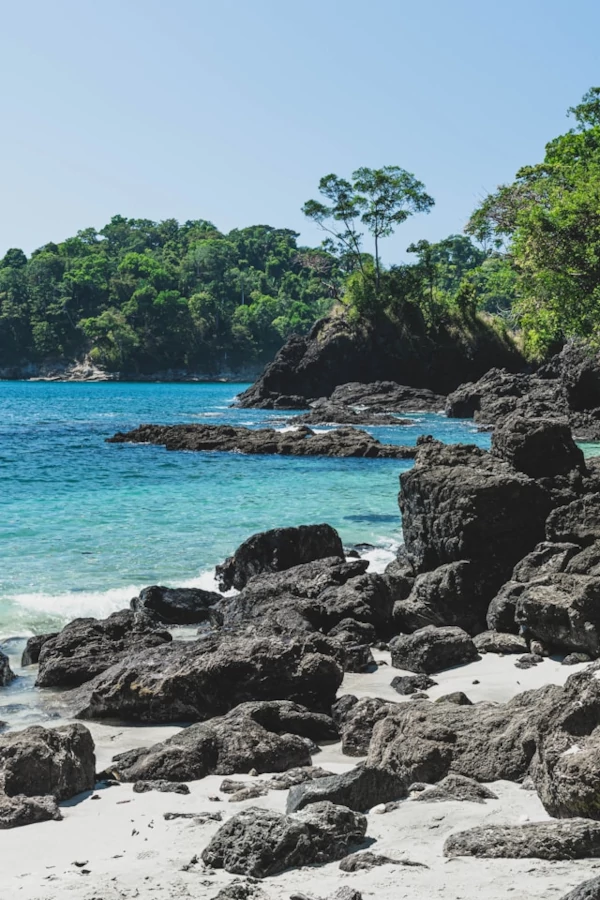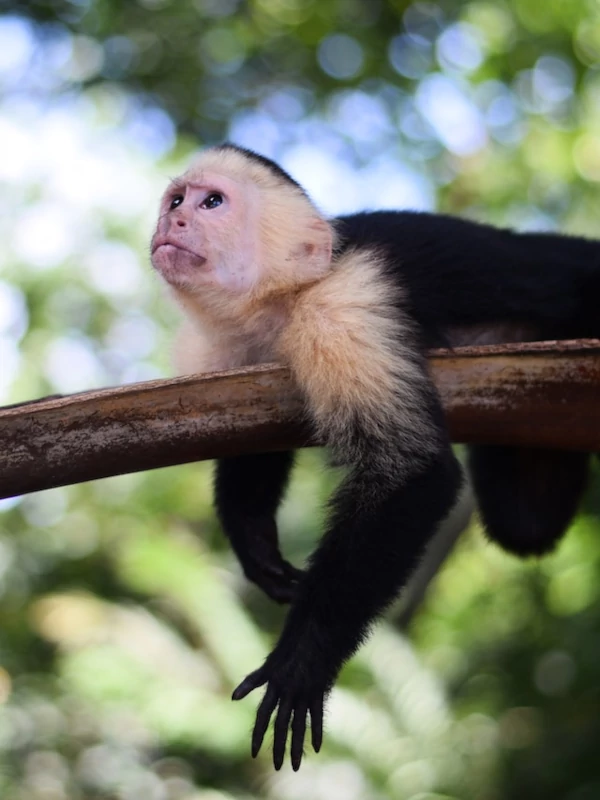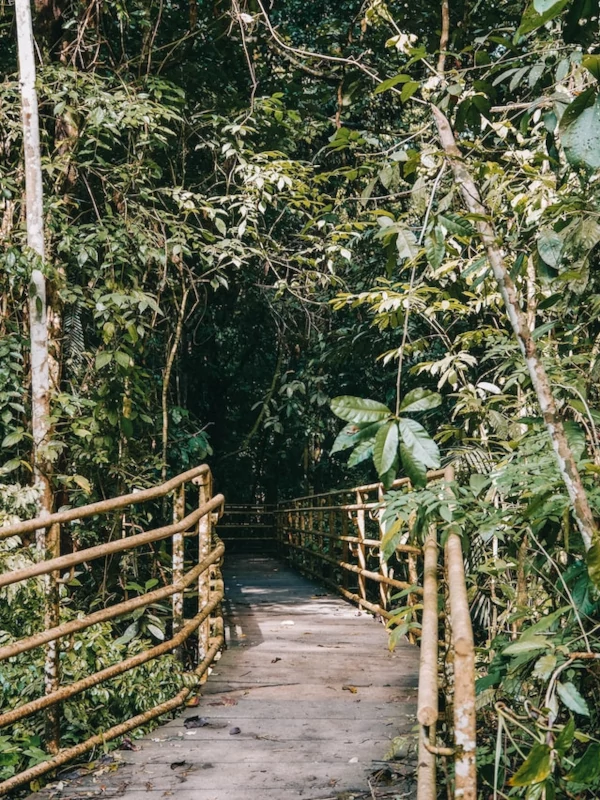Manuel Antonio National Park, Costa Rica: A Complete Guide
Unique Highlights of Manuel Antonio
Manuel Antonio National Park is small in size, covering an area of just over 1,600 acres (6.5 square kilometres), but packed with diverse attractions:
Stunning Beaches
Manuel Antonio boasts some of Costa Rica’s most beautiful beaches. Playa Espadilla Sur, with its white sands and calm waters, is perfect for families and swimmers. Meanwhile, Playa Manuel Antonio, often considered one of the best beaches of Costa Rica, offers a more secluded atmosphere.
If you’re deciding which beach to visit, our guide The Beaches of Manuel Antonio National Park: Which One is Right for You? can help you choose.
Compact Yet Diverse
Though small in size, the park offers an incredible variety of landscapes, from dense rainforests teeming with wildlife to coral reefs beneath its crystal-clear waters. This diversity makes it one of Costa Rica's most accessible yet rewarding national parks.
Breathtaking Views
The park’s trails lead to spectacular viewpoints where you can gaze out at the turquoise waters of the Pacific Ocean. Don't miss Punta Catedral, a rocky peninsula with panoramic vistas that will leave you awestruck.
Wildlife You’ll Encounter
Manuel Antonio is a biodiversity hotspot, making it a dream destination for wildlife enthusiasts. Some of the park’s most famous residents include:
Mammals
The park is famous for its playful white-faced capuchins, which are often seen near the trails. Keep your eyes peeled for the smaller squirrel monkeys, an endangered species that thrives here. Both two-toed and three-toed sloths inhabit the park’s trees. Early mornings or evenings are the best times to spot these gentle creatures as they lounge in the canopy.
Colorful Birdlife
With over 350 species of birds recorded, the park is a birder’s paradise with species like scarlet macaws, toucans, and hummingbirds. For birdwatching tips, read our article: A Guide to Birdwatching in Manuel Antonio: Top Birds to Look For.
Reptiles and Amphibians
Iguanas, snakes, and geckos are commonly spotted along the trails. Tree frogs and dart poison frogs can be seen in the most humid and dark areas of the park.
Marine species
Manuel Antonio's coastline also offers the chance to spot dolphins playing in the waves, migrating humpback whales during the months of August to October and even sea turtles swimming next to the coast.
Want to know how to maximize your chances of spotting these animals? Read our guide: Wildlife of Manuel Antonio: A Guide to Spotting Sloths and Monkeys.
Activities in Manuel Antonio
Hiking Trails
- Sendero Punta Catedral: A scenic loop trail offering stunning coastal views.
- Sendero Perezoso: A short, easy trail ideal for spotting sloths and monkeys.
- Sendero Mirador: A rewarding hike leading to panoramic viewpoints overlooking the ocean.
Snorkeling and Beach Adventures
Birdwatching
Visitor tips
Planning your visit? Here are some practical tips to make the most of your trip:
When to Visit
The dry season, from December to April, is the best time to visit Manuel Antonio for clear skies and easy access. However, the green season offers lush landscapes and fewer crowds. Read more about timing your trip: Best Time to Visit Manuel Antonio National Park.
Opening Hours
The park is open from Wednesdays to Mondays, from 7am to 3pm. Remember that the entrance tickets can only be purchased online: https://serviciosenlinea.sinac.go.cr/ with a cost of $16 for international visitors (subject to change).
What to Bring
Pack essentials like sunscreen, bug spray, water and a swimsuit. Comfortable shoes are a must for hiking. Remember that bringing food is not allowed inside the park, and that there are vending machines if needed.
Safety Tips
Stay on marked trails, keep a safe distance from wildlife, and don’t feed the animals—they are wild and protected.
For more information visit the official website: https://www.sinac.go.cr/ES/ac/acopac/pnma/Paginas/default.aspx








